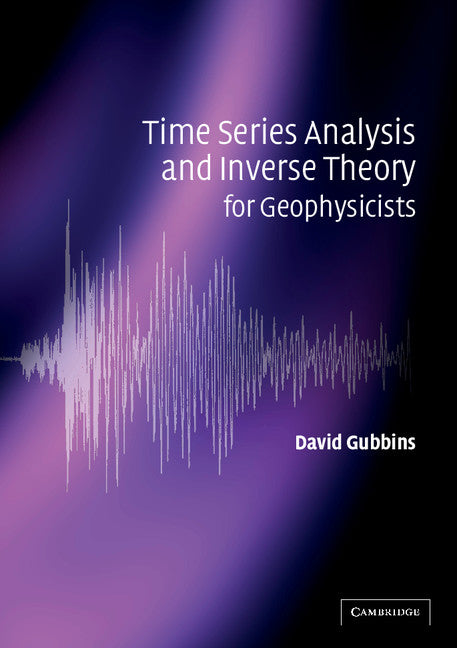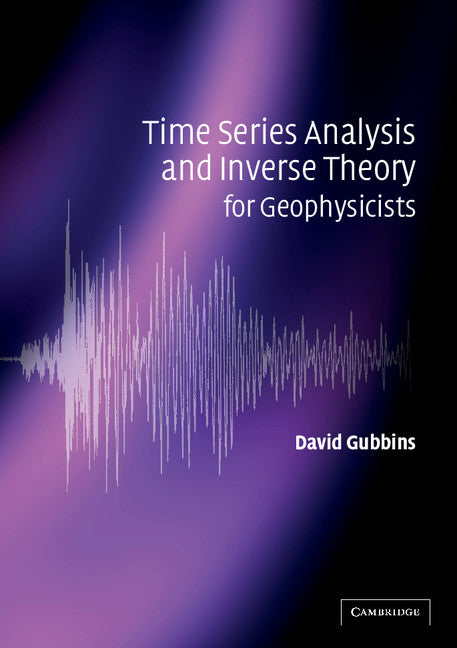Freshly Printed - allow 8 days lead
Couldn't load pickup availability
Time Series Analysis and Inverse Theory for Geophysicists
The first textbook covering spectral analysis and geophysical data inversion for undergraduate and graduate students.
David Gubbins (Author)
9780521525695, Cambridge University Press
Paperback, published 18 March 2004
272 pages, 49 b/w illus. 7 tables 71 exercises
24.8 x 17.7 x 1.8 cm, 0.62 kg
''Any body with an interest in geophysical time series and inverse problems is truly well served with this beautifully written volume.' The Leading Edge
This unique textbook provides the foundation for understanding and applying techniques commonly used in geophysics to process and interpret modern digital data. The geophysicist's toolkit contains a range of techniques which may be divided into two main groups: processing, which concerns time series analysis and is used to separate the signal of interest from background noise; and inversion, which involves generating some map or physical model from the data. These two groups of techniques are normally taught separately, but are here presented together as parts I and II of the book. Part III describes some real applications and includes case studies in seismology, geomagnetism, and gravity. This textbook gives students and practitioners the theoretical background and practical experience, through case studies, computer examples and exercises, to understand and apply new processing methods to modern geophysical datasets. Solutions to the exercises are available on a website at http://publishing.cambridge.org/resources/0521819652
1. Introduction
Part I. Processing: 2. Mathematical preliminaries
3. Practical estimation of spectra
4. Filtering
5. Processing two-dimensional data
Part II. Inversion: 6. Linear parameter estimation
7. The underdetermined problem
8. Nonlinear inverse problems
9. Continuous inverse theory
Part III. Applications: 10. Fourier analysis as an inverse problem
11. Seismic travel times and tomography
12. Geomagnetism
Appendix 1. Fourier series
Appendix 2. The Fourier integral transform
Appendix 3. Shannon's sampling theorem
Appendix 4. Linear algebra
Appendix 5. Vector spaces and the function space
Appendix 6. Lagrange multipliers and penalty parameters
Appendix 7. Files for the computer exercises
References
Index.


